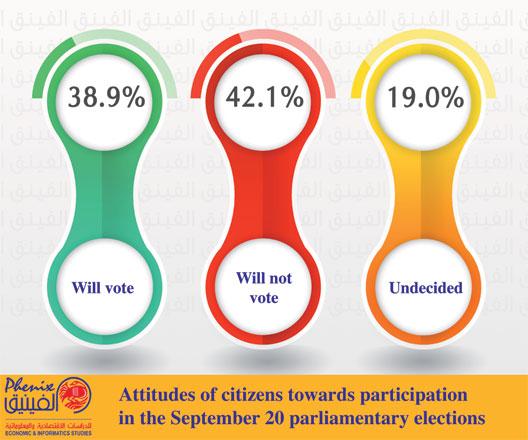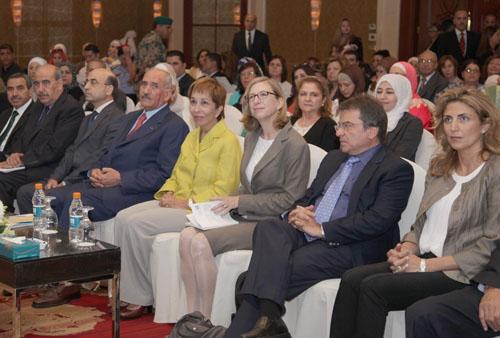You are here
Women’s rights activists urged to appeal to MPs with diverse views
By Dana Al Emam - Sep 27,2016 - Last updated at Sep 27,2016
AMMAN — Women’s organisations should work to develop a discourse that appeals to MPs with diverse views, according to Salma Nims, secretary general of the Jordanian National Commission for Women (JNCW).
The JNCW will continue to coordinate and network with the 20 newly-elected female MPs on priority issues, including amending the Elections Law, increasing the number of women deputies and enhancing their abilities, Nims said on Tuesday at a meeting with journalists, highlighting the importance of “continuous dialogue”.
The dialogue will not be limited to lists of demands, she stressed, adding that the JNCW would also work on enhancing the capabilities of women MPs to build coalitions and lobby, as well as acquainting them with Parliament’s by-laws and how to work within House committees.
“Women MPs, like their male counterparts, vary in qualifications and political stances, as well as in their levels of public service experience and legislation expertise,” Nims said.
Of the 20 women deputies elected in the September 20 poll, 12 have received training sessions through the JNCW, and some have committed to advocating for women’s issues as legislators, including Article 308 of the Penal Code, she noted, citing this as a starting point for collaboration.
The controversial provision allows convicted rapists to escape punishment if they marry their victims.
Commenting on the elections, Nims said that many female and male members of lists were only nominated to make up the needed minimum number of candidates.
The activist said that the Islamist National Reform Coalition was the only political force that did not have an issue with the success of their female candidates, as they carried the coalition’s programme.
“The coalition’s selection of their female candidates was well studied,” she said at the meeting held at the Sisterhood Is Global Institute/Jordan (SIGI), adding that the coalition was the only force with lists in all governorates.
Some Muslim countries in South Asia were able to develop broad interpretations of religious texts in ways that enhanced women’s rights without clashing with the pillars of religion, she noted.
In Amman, Zarqa and Irbid governorates, which were divided into smaller electoral districts, qualified women with supporters on the governorate and national levels were not enthusiastic about running for the elections, said Nims, as they felt they did not have strong chances to win in very small districts through competition or the women’s quota.
SIGI’s “Eye on women in the elections” project sought to observe the electoral process with a special focus on women candidates and voters, said Inam Asha, the project’s spokesperson.
The monitoring initiative seeks to build on the positive aspects of the elections for the 18th Lower House, and to address the negative aspects for future elections, Asha said.
The project’s national coordinator, Bady Buqieen, said the initiative observed the elections according to international standards and paid special attention to issues related to women, such as their ability to compete and their exposure in the media.
Gender in elections
Throughout detailed questionnaires distributed by Sisterhood Is Global Institute/Jordan’s “Eye on women in the elections” project across the Kingdom among male and female candidates and voters, the following results were collected:
- 80.9% of lists were formed by male candidates
- 90% of female candidates had no role in selecting other candidates on their lists
- 55% of female candidates said they had no previous experience of elections
- 70% of female candidates self-funded their campaigns, either from their savings or through loans
- 40% of candidates said their lists’ programmes were not gender-sensitive
- 40% of candidates said their lists’ programmes did not encourage women to take leadership positions
- 70% of women candidates said they did not participate in developing their lists’ programmes
- Only two lists mentioned their stance against Articles 308 and 340 of the Penal Code
- Around 84 per cent of surveyed lists did not call for increasing women’s representation in Parliament.
Related Articles
AMMAN — Only 38 per cent of Jordanians plan to vote in the parliamentary elections on Tuesday, according to an opinion poll released on Satu
AMMAN – The Phenix Centre for Economic and Informatics Studies has polled Jordanians on their attitudes to participating in the September 20
AMMAN – Officials, lawmakers, educators and labour rights activities gathered on Tuesday to address the issue of unfair wages for private sc



















